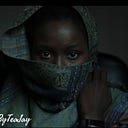Exploring Ubuntu through masculinity and vulnerability in African Literature:
In commemoration of African World Heritage Day
7 years ago, a few African coterie and cultural experts deliberated on setting aside a day to celebrate African Cultural heritage. In the absence of historical manuscripts on the continent, Literature has played a major role in telling the continent’s narrative pre colonialism till date. it has been a means to understand why we act the way we do and ask ourselves one major question as we chart a new course: Are we our ancestors?
This year, Arodan Journal of which I am an editor joins the rest of the continent in celebrating her history, culture and heritage, as we look into the theme of masculinity and vulnerability through the eyes of 5 African authors.
#MyAfricanHeritage
May the 5th be with you:
- Nairobi Heat: Mukoma WA Ngugi is a Kenyan author and poet. He is the son of the writer Ngugi WA Thiong’o. Nairobi heat is a crime novel which propels you to re-examine accepted narratives and received truths. It also explores identity as it relates to the black male in racial America.
- Houseboy: Ferdinand Oyono was a Cameroonian author. House boy takes us on a journey into the protagonist’s memoir as a lad experiencing and escaping abuse from his father while seeking asylum from his sponsor, a local European priest who suddenly dies. We see Toundi’s awe and initial adoration of Europeans and how this preconception becomes misaligned whilst he battles with his identity.
3. People of the City: Cyprian Ekwensi was a Nigerian author. People of the city tells the story of a young reporter Amusa Sango who is also a dance bandleader in a large city. He soon finds himself unemployed and homeless leading to a surprise marriage to a well off family before leaving Nigeria for Ghana. Does he soon discover that he can do more for his country rather than focusing on his personal endeavours in the city?
4. Open City: Teju Cole. This novel is a dance through history, culture, identity and solitude from an African Immigrants’ perspective.
5. The Beautiful Things that Heaven Bears: Dinaw Mengestu is an Ethiopian-American writer. the book is a deeply affecting and unforgettable debut novel about what it means to lose a family and a country and what it takes to create a new home.
6. The Madhouse: Tarfa Jason Benson explores a myriad of unspoken calamities which befell Nigeria from the Meningitis epidemic of 1996 to the Kaduna riots. T.J Benson explores grief, intimacy and the male body in a manner rarely addressed.
